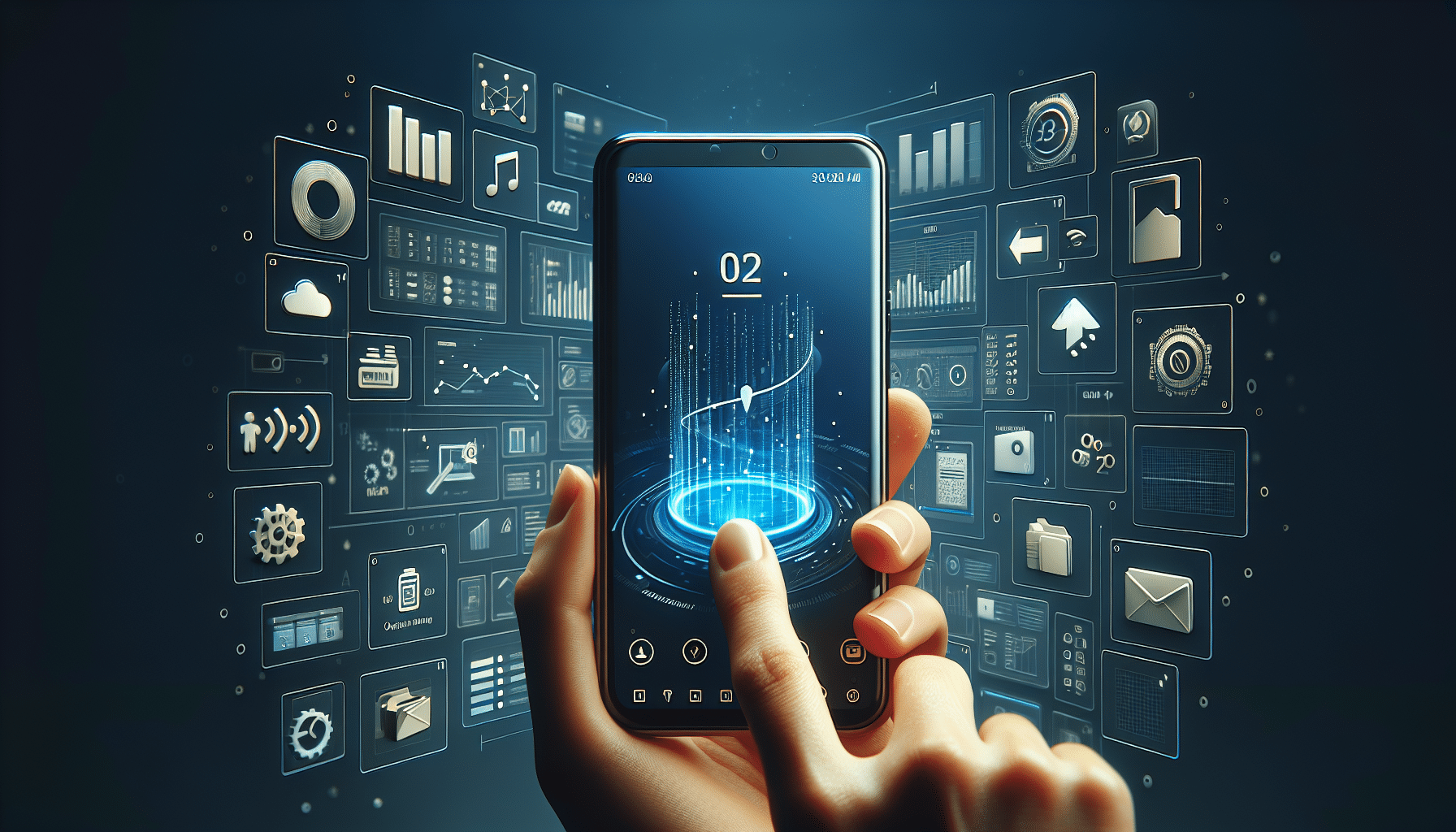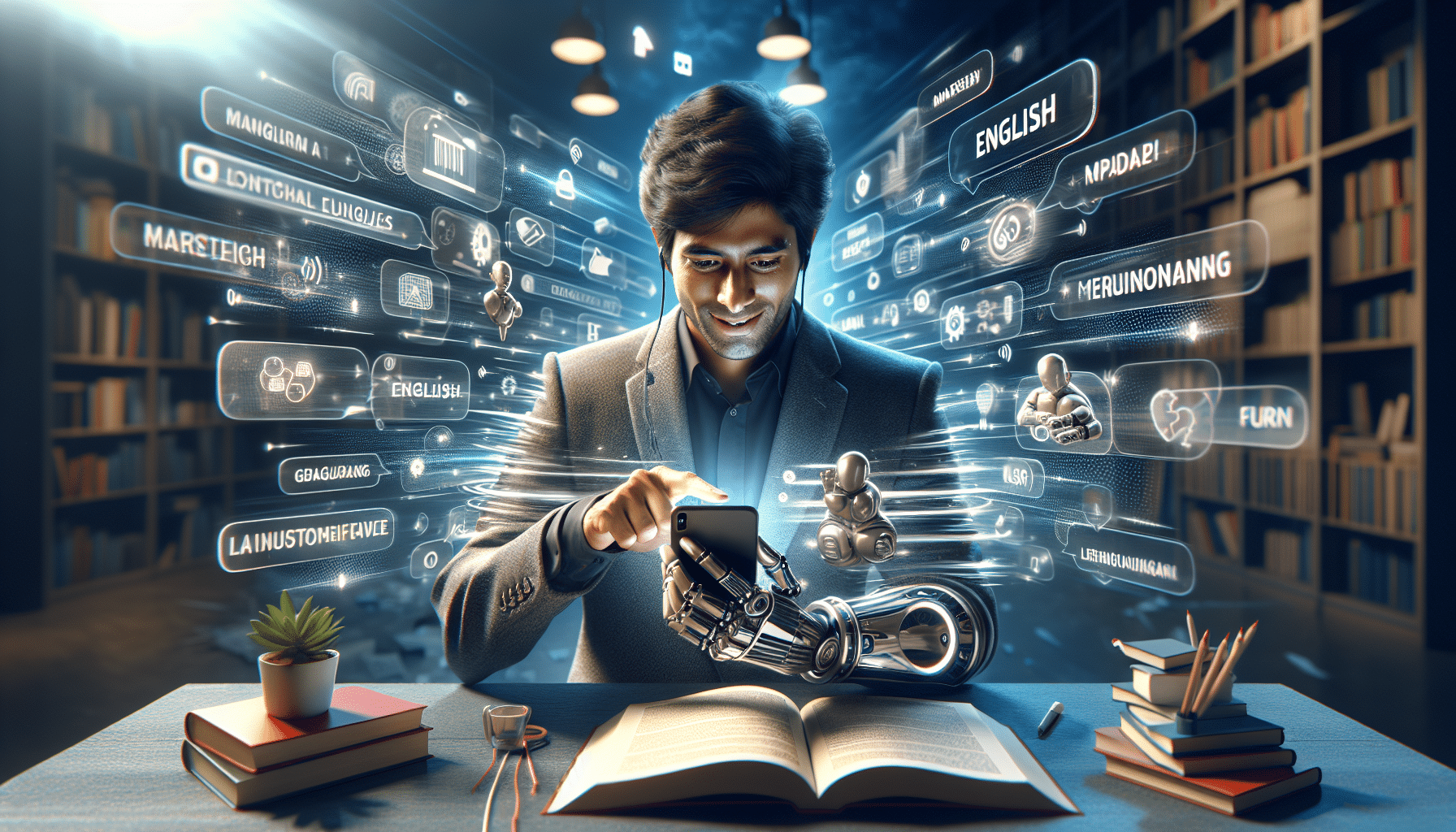Advertisements
The digital age is advancing by leaps and bounds, and artificial intelligence is at the heart of this revolution. With applications beyond our imagination, AI is transforming the way we interact with the world through our digital devices.
This content explores how the most innovative AI applications are redefining the digital experience, promising not only efficiency but also a profound impact on our daily lives.
Advertisements
In recent years, we've witnessed the emergence of AI tools that facilitate complex tasks, simplify processes, and personalize user experiences in surprising ways.
From virtual assistants that understand and respond to our needs to applications that optimize our daily routines, artificial intelligence is not just a trend, but a permanent transformation that is here to stay.
This article highlights revolutionary apps that promise to improve key aspects of our digital lives. From platforms that boost personal productivity to those that transform the way we communicate, the variety of apps available is staggering.
Advertisements
We'll explore how these tools are poised to radically change the way we interact with the digital world, making our lives more efficient and connected.
Enter a world where technological innovation is at your fingertips, promising to make your life not only easier but also more interesting.
See also:
- Maximize your cell phone's performance
- Master judo with the mobile app
- Recover your memories with ease
- Daily Destination: Know your future!
- Master the guitar in record time!
Discover how artificial intelligence applications are not only transforming entire industries, but are also available to you, ready to revolutionize your digital experience in ways you never imagined possible.
AI Apps for Time Management
Organizing our time effectively is crucial in the digital age. Today, there are artificial intelligence applications that optimize time management, allowing users to maximize their productivity.
For starters, **Todoist** is a prime example. It uses advanced algorithms to prioritize tasks, suggest optimal schedules, and remind you of important dates.
The AI behind Todoist learns from your habits and adapts its operation to your needs, offering a personalized experience.
Then there's **Notion**, an app that combines organization, project management, and note-taking, all powered by artificial intelligence.
Notion facilitates team collaboration and the integration of multiple tools into a single platform, adapting to the work dynamics of each user.
Notion's AI can suggest templates, automatically organize tasks, and assist with complex project planning.
On the other hand, these applications not only improve personal productivity but also promote a healthy work-life balance. By delegating routine tasks to AI, users can focus on more meaningful and creative activities.
Benefits of AI in Time Management
Consequently, using AI applications for time management has multiple benefits. First, it increases efficiency by automating repetitive tasks, freeing up time for higher-value activities.
It also improves personal organization, as these apps can sync with calendars and reminder systems to ensure nothing falls through the cracks.
Personalization is another significant benefit. AI can learn from your usage patterns and adapt to offer more accurate and relevant recommendations.
Finally, by reducing the stress associated with time management, these apps contribute to overall well-being, allowing users to enjoy their daily activities more.
AI Applications for Improving Well-being
In the quest for a healthy lifestyle, AI applications also play a crucial role in improving well-being.
For example, **Headspace** uses artificial intelligence algorithms to personalize meditation sessions based on user preferences and wellness goals.
Headspace not only guides users through meditation practices, but also offers mental health tips and breathing techniques.
Similarly, **Calm** is another innovative app that helps users manage stress and improve sleep quality.
With its AI technology, Calm offers meditation programs, relaxing music, and breathing exercises tailored to individual needs.
The app analyzes user behavior to offer personalized recommendations and maximize the benefits of their wellness practices.
These apps not only improve mental health but also encourage a proactive approach to overall well-being.
By integrating wellness practices into their daily routine, users can experience a greater sense of calm and balance.
Positive Impact on Mental Health
With mental health concerns on the rise in the modern world, AI apps like Headspace and Calm offer effective solutions to combat stress and anxiety.
First, these apps facilitate access to relaxation and meditation techniques, providing users with practical tools to manage stressful situations.
Furthermore, the personalization offered by AI ensures that wellness programs are tailored to each user's specific needs, thus increasing their effectiveness.
On the other hand, by promoting a holistic approach to well-being, these apps encourage users to prioritize their mental health and adopt healthier habits.
AI Applications for Education
Education is another field that has undergone radical change with the introduction of artificial intelligence. **Duolingo**, for example, is an app that uses AI to personalize language learning.
With algorithms that adapt lessons to the user's strengths and weaknesses, Duolingo offers an engaging and effective learning experience.
Another notable app is **Khan Academy**, which uses artificial intelligence to personalize learning across a variety of subjects.
Khan Academy offers an adaptive approach, where AI identifies areas of difficulty and suggests additional content to reinforce learning.
This personalized approach not only improves knowledge retention, but also makes learning more accessible and efficient.
Therefore, these applications are revolutionizing education by offering personalized resources tailored to each student's unique needs. AI enables more effective teaching and deeper learning, helping to close educational gaps.
Transformation of Traditional Learning
The incorporation of AI into education has significantly transformed traditional learning. First, it enables a more student-centered approach, where lessons are tailored to individual needs. This not only increases engagement but also improves understanding and knowledge retention.
Furthermore, by providing access to quality educational resources, these apps democratize education, making it accessible to a wider audience.
Students can learn at their own pace and in their own time, fostering a culture of continuous learning.
Finally, AI in education promotes innovation by offering new ways of teaching and learning. From gamification to adaptive learning, these applications offer dynamic educational experiences that motivate students and improve learning outcomes.
AI Applications in Healthcare
The healthcare sector has also benefited greatly from artificial intelligence applications. **Ada**, for example, is an app that uses AI to provide personalized health assessments.
Ada analyzes the user's symptoms and provides recommendations based on medical data, helping users better understand their health and make informed decisions.
On the other hand, **MyFitnessPal** is an app that uses AI to help users manage their diet and nutrition.
MyFitnessPal offers calorie tracking, nutritional analysis, and exercise recommendations, all tailored to a user's health goals.
MyFitnessPal's AI analyzes your eating habits and suggests improvements for a healthier lifestyle.
These apps not only improve health self-management but also offer a preventative approach, helping users identify and address health issues before they become major concerns.
Revolution in Healthcare
Artificial intelligence is revolutionizing healthcare by enabling a more personalized and proactive approach.
First, AI applications improve the accuracy of diagnosis and treatment by analyzing large amounts of medical data and offering evidence-based recommendations.
Furthermore, by providing access to reliable health information, these apps empower users to take an active role in their own care. This not only improves health outcomes but also reduces the burden on healthcare systems.
Finally, by promoting prevention and self-management, AI applications in health are transforming the way people approach their well-being.
By integrating advanced technology into healthcare, users can enjoy a better quality of life and improved well-being.
- Time management apps: Todoist and Notion.
- Wellness apps: Headspace and Calm.
- Educational apps: Duolingo and Khan Academy.
- Health apps: Ada and MyFitnessPal.

Conclusion
In short, artificial intelligence applications have proven to be revolutionary tools that significantly transform various aspects of our digital lives.
For starters, when it comes to time management, apps like **Todoist** and **Notion** not only optimize personal productivity but also facilitate a healthy work-life balance.
By automating routine tasks, these applications allow users to focus on more meaningful and creative activities.
Additionally, in the area of wellness, apps like **Headspace** and **Calm** offer personalized solutions to improve mental and emotional health.
With the ability to customize meditation sessions and offer relaxation techniques, these tools help users manage stress effectively and improve their quality of life.
In education, artificial intelligence has enabled a more student-centered approach, as seen in apps like **Duolingo** and **Khan Academy**.
These platforms not only personalize learning, but also make education more accessible and efficient, closing educational gaps and promoting a culture of continuous learning.
Finally, in the health sector, apps like **Ada** and **MyFitnessPal** are empowering users to take an active role in their self-care.
By providing personalized health assessments and nutritional recommendations, these apps not only improve health self-management but also encourage a preventative approach.
Ultimately, AI applications are not only improving efficiency and personalization in various areas, but are also promoting a holistic approach to overall well-being.
By integrating these advanced technologies into our daily routines, we're poised to enjoy a more balanced and enriched life.




